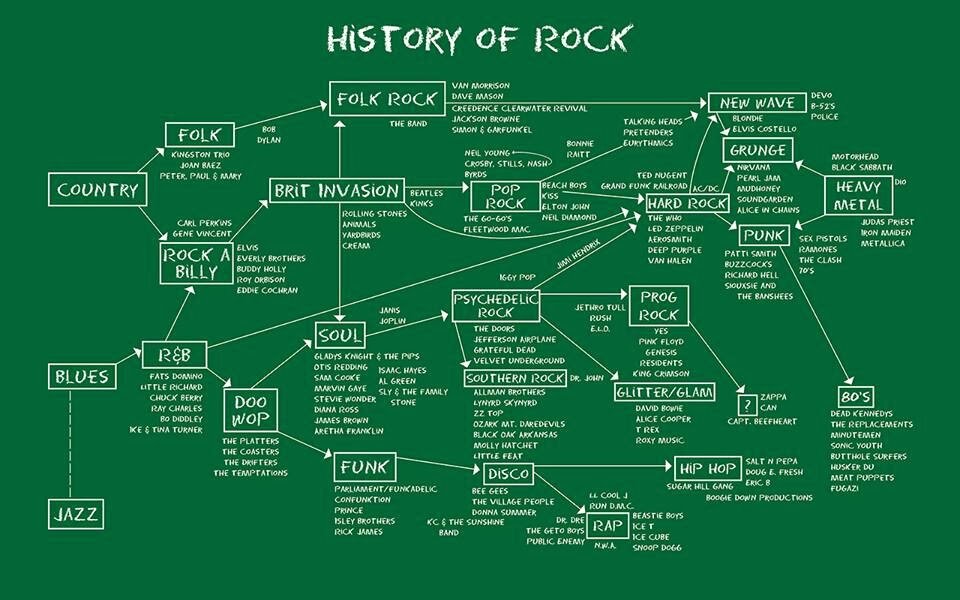Table Of Content

It also was one of the biggest genres including electronic music, synthesizers, and drum machines. In addition to those developments, it was one of the genres that helped advance the art of audio mixing. That process allowed multiple sounds to be compiled into one track, changing the dynamics and tempos of fan favorites and hits to something more oriented for dance clubs.
4 Time Signature and Beat
While house music was taking shape in Chicago and New York, another electronic music movement was brewing in Detroit. Known as techno, this genre emerged in the 1980s and was characterized by its futuristic sound and experimental approach. While Chicago may have been the birthplace of house music, New York City played a crucial role in its development and evolution. In the 1980s, the city’s vibrant club scene provided a breeding ground for emerging DJs and producers to experiment and push the boundaries of the genre.
Music Technology Influences
Disco emerged in the early 70s as an underground movement born out of the urban gay culture in New York City. Predominantly LGBTQ, African American, and Latino communities popularized underground nightclubs and accelerated dance music culture. These clubs also provided safe havens for partygoers who wanted to escape from social issues and enjoy a euphoric experience away from public scrutiny. Legendary nightclubs such as New York’s “Paradise Garage” and Chicago’s “Warehouse” set the stage for modern club culture and catapulted the club DJ to rock star status.
House Music Guide
Stutter House: Steve Cardigan Unpacks The Past, Present, And Future Of This Hot New Genre - Magnetic Magazine
Stutter House: Steve Cardigan Unpacks The Past, Present, And Future Of This Hot New Genre.
Posted: Thu, 08 Feb 2024 08:00:00 GMT [source]
Typically, electro house music is played at 128 beats per minute and has huge rises and drops. At its core, house music is about rhythm, groove, and the unifying power of the dancefloor. It’s characterized by a 4/4 beat, repetitive basslines, and soulful vocals that often convey themes of love, freedom, and unity. House music is not just a genre; it’s a feeling, a lifestyle, and a culture that transcends boundaries. House music, a genre that emerged from the vibrant streets of Chicago in the late 1970s, has since captivated the world with its infectious beats and electrifying energy. In this extensive exploration, we dive deep into the pulsating heart of house music, tracing its roots, evolution, and influence.
Tropical House: The Beachside Groove
While not every house song will have this feature, many producers will utilize a repetitive vocal hook in their production. This is prevalent in commercial house music more than it is in the underground styles. Almost every house song that has ever been written will have a 4/4 time signature.
“Voodoo Ray” – A Guy Called Gerald (

The rise of House music during the late 1980s and early 1990s brought the genre to new heights. Clubs like Paradise Garage in New York and Hacienda in Manchester became legendary hubs for House music, attracting sold-out crowds and uniting total strangers on the dance floor. And with MTV attracting hundreds of thousands of viewers and the internet making music accessible to millions, House music exploded.
Soulful Vocals
By 2011, the world had accepted house music, and it quickly became one of the largest musical genres on the planet. The big room sound was now called “EDM,” and every festival was filled with massive stars like Avicii. The mid-2000s found many house music producers embracing a darker and deeper sound. Who’s afraid of Detroit is a perfect example of the minimal and deep sound of this era. From the deep and sultry vocals to the mesmerizing beats, “Your Love” is a dancefloor anthem that has lasted through the ages and will continue to be extremely influential to future generations of inspiring DJs and music producers.
The primary difference can be that Tropical House has a much more uplifting, light energy with noticeably less electronic feel to it than Deep House. With roots in Deep House, you’ll find that most Tropical House music is hard to distinguish from its subgenre of origin. It evolved from that into incorporating Latin American vocals, percussions, and powerful Flamenco riffs along with the classic house structure. The iconic song, Rhythm is a Dancer, belongs to this equally-iconic genre, which developed alongside Eurodance in the late 1980s. One of the earliest, biggest albums to have popularized Electro House is Discovery by Daft Punk. In fact, there’s a lot of hate for the subgenre as it feels too repetitive or predictable.
Having produced as Cajmere since the early 90’s, Cajmere has created timeless classics as “Percolator” and is still a sought after presence in the dance music scene. Although many would not consider Deadmau5 to be a standard house music producer, he did help bring in the modern electro house into massive popularity for the EDM crowd to enjoy. This world famous producer has been well known even to the mainstream crowds as his music as obtained a massive popularity and following. An infectious, kind and loving character, Paul Johnson is best known for his self-taught DJ style of house music and his 1999 single “Get Get Down”, which became a worldwide hit.
While the famous duo released a new album as recently as 2013, the two announced that they would no longer be collaborating together. This was a big hit to the House scene but one that was inevitable for one of the groups that helped to define the genre. Levels and other songs like it are a perfect time capsule back to the explosion of the EDM sound in the 2010s. “You Don’t Know Me” has been a mainstay in DJs crates since the 90s and can be played by DJs in almost any genre. Acid house and tracks like “Acid Tracks” were extremely influential and responsible for the Summer of Love in the UK. Hip-hop will absolutely play a role in 2024, as its presence and impact has continued to play a role, from George H.W. Bush to President Biden.
However, the “disco fever” had a relatively short lived mainstream life span as music historians often said that disco “died” in 1979. Both rely on “four-on-the-floor,” meaning there's a kick drum on every beat of a song that has a 4/4 time signature. Fisher’s “Losing It” is a modern house anthem that has dominated festival stages and club nights.
Chosen Few picnic draws house music fans from all over to South Side’s Jackson park - Chicago Sun-Times
Chosen Few picnic draws house music fans from all over to South Side’s Jackson park.
Posted: Sat, 08 Jul 2023 07:00:00 GMT [source]
The lyrics often touch upon themes of love, relationships, and self-discovery. I was still in high school, and I went to a club in Baltimore, where I lived, called Odell’s – its tagline was “You know if you belong” – and it had this amazing sound system. You would feel it in your body because the sound system was so thunderous, warm and resonant. It was a communal experience, a place where people went to escape the struggles of their daily life or be accepted by a group that was inclusive of everyone.
You’d have 5,000 Black kids on the dancefloor dancing to Rock Lobster by the B-52s and music by Liaisons Dangereuses [the avant-garde German electronic act]. The weirder, the better, because the purpose of house music at that time was to keep the gangsters out of the clubs. We found out early on that if we said it was a house music party, none of the gangsters would come because they thought it was a gay party, as Frankie Knuckles DJed at the Warehouse – and that was a gay club. Despite all the divergences, there were always large sections of the clubbing world that were dedicated to straight-up, no-messing-around house music.
Dirtybird Records is a record label that has made a significant impact on the house music scene with its distinctive sound and playful approach. Founded by Claude VonStroke in 2005, the label has become synonymous with a style known as “dirtybird sound,” which blends elements of house, techno, and bass music. He was also a talented remixer and producer, known for his ability to transform tracks into timeless dancefloor hits. His remix of “Don’t Make Me Wait” by the Peech Boys and his work with other artists showcased his unique approach to production, characterized by intricate drum patterns and mesmerizing basslines.
Its relentless beat and infectious vocal sample make it a dancefloor weapon. “Music Sounds Better with You” is a French house masterpiece that oozes with funky grooves and an infectious vocal hook. It has adapted to the digital age, with DJs and producers using advanced technology to create and share their music. Social media and streaming platforms have also played a significant role in connecting artists with their global fan base.
Despite the impact early ’90s house music had on American pop music, some try to dispute house music’s origins, claiming that Europeans pioneered the sound. This is partially due to the fact other genres, including grunge, dominated American radio waves while house music began to evolve in Europe. History always repeats itself, and 30 years ago, the U.S. was also experiencing a house music revival. The first half of the ’90s decade was wrought with soulful diva vocalists belting house anthems that still sound timeless.

No comments:
Post a Comment